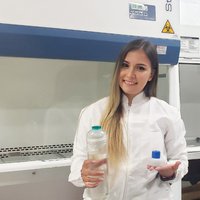Nanotechnology & materials
Haotian Wang
His “green chemimal engineering” produces chemical products from carbon dioxide and renewable electricity

China
Kai Liu
He developed a series of smart materials to keep lithium-ion batteries safe

Global
Dawei Di
His LED materials are cheaper and easier on the environment than ones now in use

China
Linxiao Zhu
Manipulating photons to unlock efficient cooling and energy use

Latin America
María Alexandra Tamayo
Autonomous and low cost filters eliminate all bacteria, viruses, and fungi in water, making it suitable for human consumption
